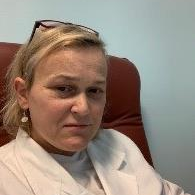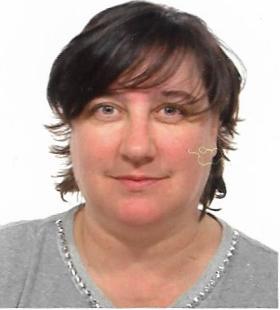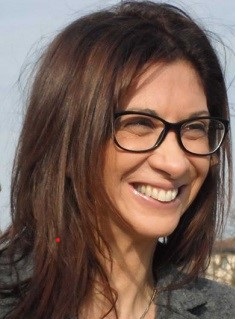Studying at the University of Verona
Here you can find information on the organisational aspects of the Programme, lecture timetables, learning activities and useful contact details for your time at the University, from enrolment to graduation.
Academic calendar
The academic calendar shows the deadlines and scheduled events that are relevant to students, teaching and technical-administrative staff of the University. Public holidays and University closures are also indicated. The academic year normally begins on 1 October each year and ends on 30 September of the following year.
Course calendar
The Academic Calendar sets out the degree programme lecture and exam timetables, as well as the relevant university closure dates..
| Period | From | To |
|---|---|---|
| 1° e 2° semestre (corsi annuali) PROFESSIONI SANITARIE | Oct 1, 2021 | Sep 30, 2022 |
| 1 SEMESTRE PROFESSIONI SANITARIE | Oct 1, 2021 | Dec 23, 2021 |
| 1° SEMESTRE TPALL | Oct 4, 2021 | Dec 20, 2021 |
| 2 SEMESTRE PROFESSIONI SANITARIE | Jan 10, 2022 | Sep 30, 2022 |
| 2° SEMESTRE TPALL | Feb 1, 2022 | Apr 30, 2022 |
Exam calendar
Exam dates and rounds are managed by the relevant Medicine Teaching and Student Services Unit.
To view all the exam sessions available, please use the Exam dashboard on ESSE3.
If you forgot your login details or have problems logging in, please contact the relevant IT HelpDesk, or check the login details recovery web page.
Should you have any doubts or questions, please check the Enrollment FAQs
Academic staff
 stefania.battisti@univr.it
stefania.battisti@univr.it
 borghesi.a@mail.apss.tn.it
borghesi.a@mail.apss.tn.it
 maurizio.grigiante@unitn.it
maurizio.grigiante@unitn.it
 daniele.longo@apss.tn.it
daniele.longo@apss.tn.it
 rocco.micciolo@economia.unitn.it
rocco.micciolo@economia.unitn.it
 francesco.torre@apss.tn.it
francesco.torre@apss.tn.it
Study Plan
The Study Plan includes all modules, teaching and learning activities that each student will need to undertake during their time at the University.
Please select your Study Plan based on your enrollment year.
1° Year
| Modules | Credits | TAF | SSD |
|---|
2° Year activated in the A.Y. 2022/2023
| Modules | Credits | TAF | SSD |
|---|
3° Year activated in the A.Y. 2023/2024
| Modules | Credits | TAF | SSD |
|---|
| Modules | Credits | TAF | SSD |
|---|
| Modules | Credits | TAF | SSD |
|---|
| Modules | Credits | TAF | SSD |
|---|
Legend | Type of training activity (TTA)
TAF (Type of Educational Activity) All courses and activities are classified into different types of educational activities, indicated by a letter.
Chemical-Physical Sciences - CHIMICA GENERALE E INORGANICA (2021/2022)
Teaching code
4S000462
Teacher
Credits
2
Language
Italian
Scientific Disciplinary Sector (SSD)
CHIM/03 - GENERAL AND INORGANIC CHEMISTRY
Period
1 SEMESTRE PROFESSIONI SANITARIE dal Oct 1, 2021 al Dec 23, 2021.
To show the organization of the course that includes this module, follow this link: Course organization
Learning outcomes
Aim of the course
The Chemistry course provides the basic concepts of inorganic chemistry in preparation for the subsequent organic chemistry study. The main aims of the course are to:
• develop, in the students, the proper chemical knowledge and property of language suitable to handle chemical problems with a scientific approach;
• provide a description of the structure of atoms, of the chemical bonds and of the molecules that lead to the formation of inorganic compounds and that explain their physical-chemical properties;
• illustrate the interactions between atoms and between molecules, to comprehend the different aggregation states of the matter;
• provide a description of the transformation of matter through the chemical reactions;
• develop the capacity to carry out chemical calculations relative to mass balance.
At the end of the course, the student will be able to:
• describe the elementary particle structure of atoms, isotopes and their ions;
• describe the electronic configurations of the various elements, to predict their main periodic properties and their chemical reactivity;
• understand and justify atomic bonding in inorganic compounds by means of the valence-bond theory;
• comprehend the interatomic and intermolecular interactions to understand the various aggregation states of the matter;
• describe the behaviour of the ideal gas phase;
• describe the chemical solutions, the main concentration units.
Requirements
The basic knowledge concerning the numerical, algebra and analytical geometry calculations are required, such as typically given in the high school.
Learning and teaching mode.
The course is organized in 20 hours of frontal lessons in which syllabus arguments are presented on the blackboard. Besides the theoretical aspects, step by step, representative examples and exercises will be shown in order to practice.
Specific didactical material will be furnished to the students at the end of each paragraph. The regular attendance of the lessons is recommended for an easier learning.
Program
Syllabus
Atomic structure, fundamental particles, atomic dimensions. Elements and isotopes. The concept of mole and the Avogadro number, atomic weights. Atomic orbitals, relevant energy contents, geometry for hydrogen-like and poly-electronic elements. Electronic configurations of elements and periodic properties: volume and atomic radius, ionization potentials and electronic affinity.
Molecules, compounds, chemical bonds and molecular interactions. Molecules and molecular weights, molecules and chemical formula. Oxidation numbers. Nomenclature of inorganic compounds, general properties and chemical reactivity. Theory of the ionic bond. Valence bond theory, covalent bonds and dative bonds. Multiple bonds. Electronegativity. Sigma- and pi-orbitals. Hybridization of atomic orbitals. Delocalization and resonance.
Structure of polyatomic molecules. Intermolecular interactions, weak intermolecular forces, dipole-dipole interactions, hydrogen bonds.
Physical States of Matter, laws and properties, phase transitions. The Perfect gas model, laws of the gas state. State diagram of water. The liquid phase. Solutions: solute concentration methods.
Chemical reactions and reaction balance, weight calculations and stoichiometry. Acid and base reactions.
Bibliography
Examination Methods
The verification of the Inorganic Chemistry module is tested by a written examination performed at the same time of the Organic Chemistry one. An eventually oral examination is programmed only in the case of a not complete sufficiency acquired in the written counterpart. Written test consists in a set of open questions and numeric calculation exercises. Typically examination takes 1 hour long.
The number and the dates of the examinations are fixed according to the faculty instructions; time-schedule examinations are published at the beginning of each semester. To enrol for the final-examination the student must exclusively utilize the information processing system (Esse3).
Books and other didactical support materials
Several books are now available. Among these the following are suggested:
a) "Elementi di Chimica", L. Palmisano e M. Schiavello, Casa Editrice EdiSES;
b) "Fondamenti di Chimica per le Tecnologie", R.A. Michelin e A. Munari, Casa Editrice CEDAM.
During the lessons some didactical support materials, in informatic form, will be available for students who regularly will attend the classes. This didactical material is structured in:
lesson-notes, concerning the arguments presented on the blackboard during the frontal-lesson;
numeric exercises, with relative solution;
resolutions of the texts proposed in the previous examinations.
Career prospects
Module/Programme news
News for students
There you will find information, resources and services useful during your time at the University (Student’s exam record, your study plan on ESSE3, Distance Learning courses, university email account, office forms, administrative procedures, etc.). You can log into MyUnivr with your GIA login details: only in this way will you be able to receive notification of all the notices from your teachers and your secretariat via email and soon also via the Univr app.
Graduation
Documents
| Title | Info File |
|---|---|
|
|
pdf, it, 142 KB, 14/04/23 |
Gestione carriere
Orario Lezioni
Documents
| Title | Info File |
|---|---|
|
|
pdf, it, 509 KB, 11/04/24 |
|
|
pdf, it, 499 KB, 11/04/24 |
|
|
pdf, it, 621 KB, 11/04/24 |
|
|
pdf, it, 1453 KB, 07/02/24 |

 +39 045 812 8270
+39 045 812 8270











